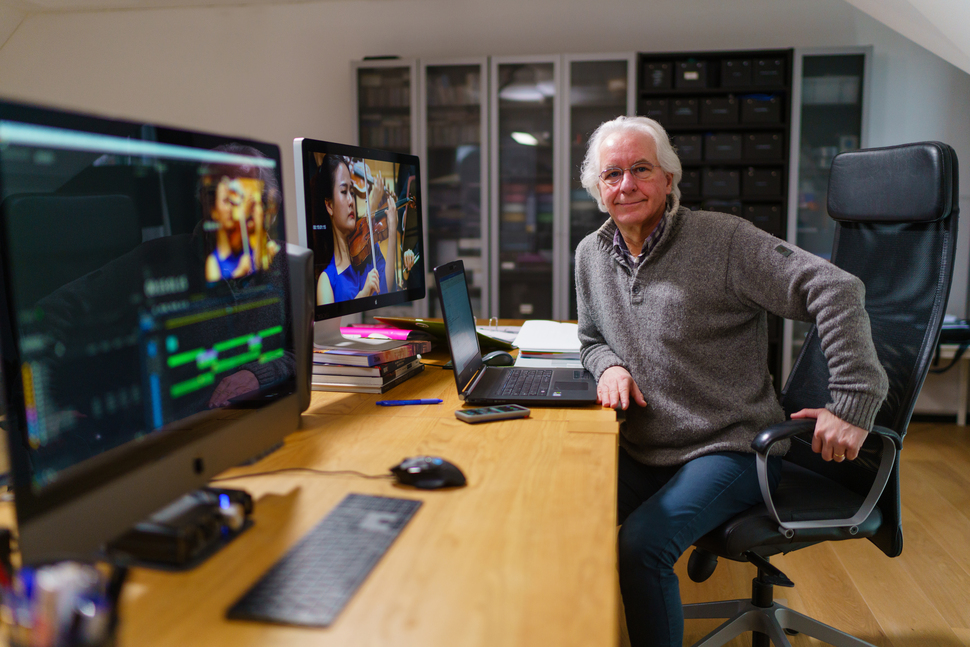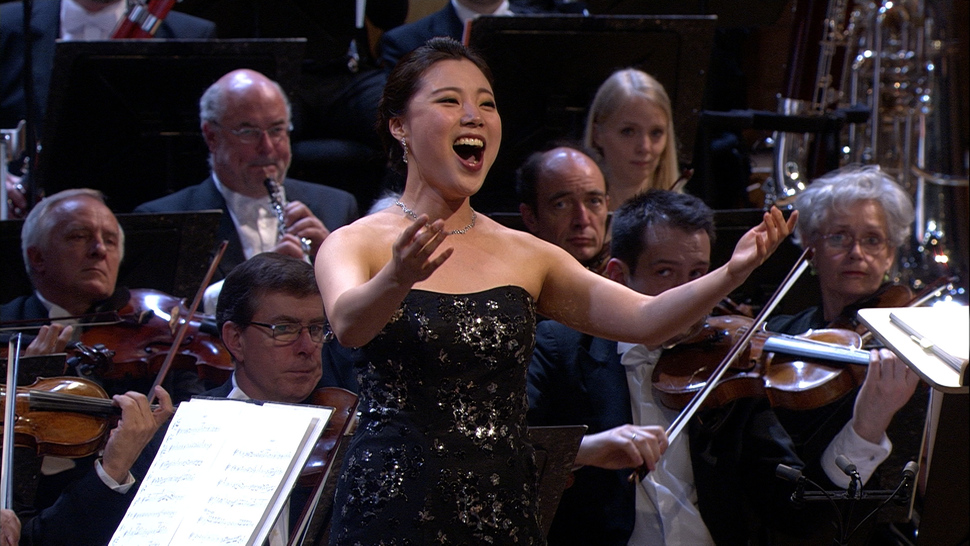[Nov] Belgian filmmaker explores driving force behind success of Korean classical musicians
Date Nov 25, 2022
 Filmmaker Thierry Loreau (Courtesy of Thierry Loreau)
Filmmaker Thierry Loreau (Courtesy of Thierry Loreau)
Belgian filmmaker Thierry Loreau has been a keen observer of the classical music scene in Korea. The director has visited Korea 17 times since his first trip in 2010 and made two documentaries about Korean musicians making a splash on the international stage – “Korean Music Mystery” (2012) and “K-Classics Generation” (2020).
He said Korea’s award-winning classical musicians send a message that this genre of music, which originated in Europe, is still alive and has a place in modern society.
Unlike Europe where the young consider classical music to be old fashioned and 90 percent of the audience is over 50 years old, there is a lot of enthusiasm among Korea’s younger generations for this genre.
Loreau wrote in an email interview with Korea Here & Now that classical music has a bright future in this country thanks to the enthusiasm, energy and freshness that young Koreans bring to the genre.
He explained that there are at least three driving factors behind the success of Korean musicians in major international competitions.
“The most important reason is that I think teachers in Korea changed their way of teaching,” he said.
His latest documentary, “K-Classics Generation,” contains an interview with piano professor Kim Daejin, the president of Korea National University of Art (KNUA). Kim recounts his time on a jury in a competition: Four Korean candidates came on stage and he was surprised that all of them played the same way, wore the same clothes and had the same haircut.
When four Europeans performed on stage next, Kim said he was stunned by their different personalities. That moment marked a major turning point in his teaching method.
“Kim understood that he had to find a different way of teaching for every student because musicians are all unique. His goal now is to understand the student and give him/her the keys to express his/her own feelings, originality, identity,” Loreau said.
 Soprano Hwang Sumi in a scene from Thierry Loreau’s documentary film “K-Classics Generation.” Hwang won the first prize in the prestigious Queen Elisabeth Competition in Brussels in 2014. (Courtesy of Thierry Loreau)
Soprano Hwang Sumi in a scene from Thierry Loreau’s documentary film “K-Classics Generation.” Hwang won the first prize in the prestigious Queen Elisabeth Competition in Brussels in 2014. (Courtesy of Thierry Loreau)
The director added that the solid performances of Korean musicians in competitions prompt the younger generation to emulate them.
“The young girls and boys in Korea all want to become famous like Lim Yun-chan, Lim Ji-young, Cho Seong-jin or Hwang Sumi. These musicians became role models and inspire the next generation,” he said, adding that he was surprised to find thousands of young spectators lining up 100 meters after the concert to get autographs or take selfies with the artists.
Lastly, he talked about how learning an instrument became part of the general education in Korea. According to Loreau, parents understand that a child’s ability to play an instrument is fundamental to learning important values for becoming a successful student and contributing to society as an adult.
“In Korea, there are excellent preparatory schools like the Korea National Institute for Gifted in Art, which the Ministry of Culture, Sports and Tourism entrusts KNUA to operate. In these special schools, teachers audition and select the new talents of tomorrow from an early age,” he said.
“As a result, children aged 9 or 10 are supported by public institutions. They have lessons with the same teachers they will have at university (such as KNUA), the classes are completely free and they are given opportunities to play in public concerts.”
Loreau believes the future still looks bright for Korean musicians in competitions for at least 10 years. However, he pointed out that Korea could fall victim to its own success.
“If Korea continues to produce such good musicians, there may be a traffic jam and there will not be room for everyone,” he said. “But I only want to see the positive side now. Korea has breathed new life into this music and I think Europe is ready to welcome many of these Korean musicians who are bringing its music back to life.”
**If you have any questions about this article, feel free to contact us at kocis@korea.kr.**

The Ministry of Culture, Sports and Tourism's "Korea Here & Now" work can be used under the condition of "Public Nuri Type 1 (Source Indication)."




